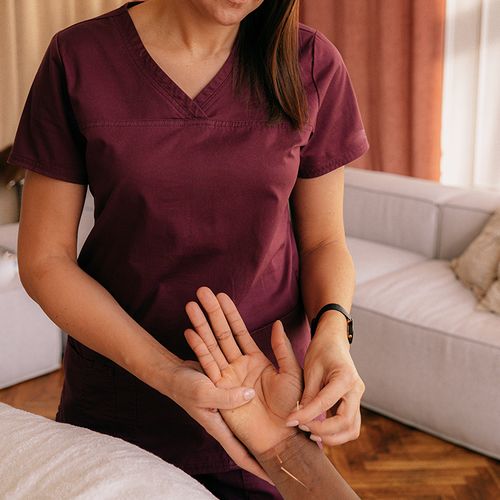Compared to real acupuncture, placebo acupuncture was associated with significantly higher overall pregnancy rates among women undergoing in vitro fertilization (IVF), says a University of Hong Kong study.
Real Vs. Placebo Acupuncture
In real acupuncture, fine needles are inserted into particular points on the body. In placebo acupuncture, blunt needles that look identical to real acupuncture needles retract into the handle of the needle when pressed on the skin, but still give the sensation and appearance of entering the skin.
The Study
The researchers gave real or placebo acupuncture to 370 women on the day of embryo transfer and found that 55.1% of those who received placebo acupuncture became pregnant, compared with 43.8% of those who received real acupuncture. The findings were published in Human Reproduction.
"We found a significantly higher overall pregnancy rate following placebo acupuncture when compared with that of real acupuncture," said study author Ernest Hung Yu Ng, MD, an associate professor in the department of obstetrics and gynecology at the University of Hong Kong.
Implication
The results suggest that placebo acupuncture may not act as an inert control for real acupuncture and may be having a real effect. That theory is supported by the fact that the researchers noted significant changes in measurements for uterus receptivity and patient stress levels after the women received both the real and placebo acupuncture.
Possible Explanations
There are two possible explanations for the study results.
"Placebo acupuncture is similar to acupressure and therefore is good enough to improve the pregnancy rate," said Dr. Ng, who added it's also possible that real acupuncture may, in some way, reduce the pregnancy rate. Acupressure utilizes the same pressure points as acupuncture, but uses gentle to firm finger pressure instead of needles.
"So far, there is no evidence that real acupuncture would adversely affect IVF outcomes because, in a previous meta-analysis of several acupuncture studies, the pregnancy rate was higher in the acupuncture group than in the control group. However, we cannot draw a firm conclusion about this from our current study, as we did not compare the two groups with a third control group of patients who received neither form of acupuncture. Further studies should be conducted to compare placebo or noninvasive acupuncture and controls without acupuncture," Dr. Ng said.
